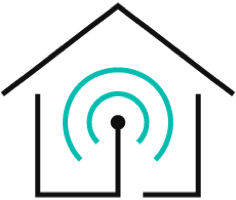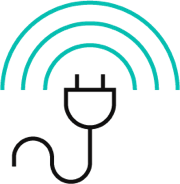Imagine a world where technology seamlessly understands and responds to your every command, where tasks that once seemed insurmountable are now accomplished with a simple voice command. Now, consider how this reality could revolutionize the lives of individuals facing various disabilities, empowering them to navigate through challenges and embrace opportunities like never before. In a society where accessibility and inclusion are paramount, the emergence of voice assistants as assistive technology has opened a transformative door for people with disabilities. In this blog, we delve into the remarkable ways in which voice assistants are reshaping the landscape of accessibility, communication, and independence for individuals with disabilities. Join us as we explore the profound impact of integrating voice assistants into the lives of those who stand to gain the most.
- Homes for Disabled Adults: Ensuring Accessibility
- Smart Devices: Revolutionizing Independence
- Introducing the EVVR Smart Plug: A Game-Changer for Disabled Adults
- Real-Life Applications and Benefits
Homes for Disabled Adults: Ensuring Accessibility
Ensuring accessibility in homes for disabled adults is an essential aspect of promoting inclusivity, independence, and quality of life for individuals with disabilities. Here are some key factors you should consider in this regard:
1. Universal Design
Universal design principles should be at the forefront of creating accessible homes. This concept involves designing spaces that are inherently usable by people of all ages and abilities. By integrating universal design features, such as wider doorways, lever-style handles, and open floor plans, homes become accommodating to a wide range of disabilities without looking overtly clinical or segregated.
2. Physical Accessibility
Physical accessibility involves eliminating architectural barriers that hinder mobility. Key considerations include ramps or gradual slopes for wheelchair access, wider hallways and doorways to accommodate wheelchairs, and reachable light switches and outlets. Ensuring that the most frequently used areas of the home – bedrooms, bathrooms, kitchen, and living spaces – are easily navigable is of paramount importance.
3. Adapted Bathrooms
Bathrooms should be carefully designed to cater to various disabilities. Installing roll-in showers with grab bars, adjustable showerheads, and non-slip flooring enhances safety. Lever faucets and higher toilets with grab bars also aid in independent use. Properly designed bathrooms not only accommodate wheelchair users but also individuals with limited mobility and balance issues.

Smart Devices: Revolutionizing Independence
Smart devices are revolutionizing independence for disabled individuals by providing them with the tools and technologies needed to navigate their daily lives more easily and autonomously. Here are some examples of smart devices tailored for disabled individuals:
1. Smart Home Assistants
Devices like Amazon Echo with Alexa, Google Home with Google Assistant, and Apple HomePod with Siri are voice-activated assistants that allow individuals to control various aspects of their environment through voice commands. They can control lights, thermostats, and appliances, and even perform tasks like setting reminders or sending messages without needing physical interaction.
2. Smart Door Locks
Smart door locks offer a convenient and secure way to manage access to one's home. For people with disabilities, traditional key-based locks can pose challenges, especially if they have limited dexterity or mobility issues. Smart locks can be controlled remotely using a smartphone app, eliminating the need for physical keys. This remote access is particularly useful for individuals who might have difficulty approaching the door or manipulating keys. Additionally, some smart locks can be integrated with voice-activated assistants, allowing users to unlock or lock their doors using voice commands. This level of control enhances accessibility and makes entering and exiting the home more manageable.
3. Smart Lighting Systems
Smart lighting systems like Philips Hue or LIFX allow users to adjust lighting levels and colors through a smartphone app or voice commands. This is beneficial for individuals with visual impairments or sensory sensitivities, as they can create customized lighting environments that suit their preferences. You can also use EVVR Smart Relay Switch control lights and other appliances using voice commands.
4. Home Security and Monitoring
Smart security cameras, motion sensors, and doorbell cameras offer real-time monitoring and alerts, enhancing safety and security. People with mobility challenges or those who live alone can feel more secure knowing they can monitor their homes remotely.

Introducing the EVVR Smart Plug: A Game-Changer for Disabled Adults
Innovation leaps forward with introducing the EVVR Smart Plug, a transformative solution catering to the unique needs of disabled adults. This groundbreaking technology empowers users with the ability to effortlessly control a wide range of appliances and monitor energy consumption, all while enjoying the convenience of remote access through various platforms. Here are some of the key features will be getting as disabled individuals:
1. Turn On/Off Appliances Remotely
The EVVR Energy Monitoring Smart Plug redefines convenience by placing device control at your fingertips, regardless of your physical location. With an array of intuitive options, managing your appliances becomes a seamless experience.
Through the EVVR App, users can command their appliances remotely. Whether it's turning off lights left on in another room or ensuring devices are switched off while away from home, the app ensures that your devices are just a tap away. This level of accessibility empowers users with mobility challenges, making it easier to control their environment without needing physical effort or assistance.
3. Controlling Devices Using Voice Commands
The EVVR Energy Monitoring Smart Plug's compatibility with Apple HomeKit takes convenience to a new level by introducing the ease of voice commands. By simply saying "Hey Siri," you can effortlessly command your appliances to turn on or off. This integration offers unparalleled accessibility and control, especially for individuals with disabilities who may have limited mobility. Good news for Alexa and Google Assistant users: EVVR Energy Monitoring Smart Plug will soon be compatible with these protocols.
4. Helps Handicapped People to Monitor and Reduce Energy Consumption
For someone with a disability, managing energy consumption can be crucial for a comfortable and efficient living environment. The EVVR Smart Plug takes this concern to heart by offering an advanced energy monitoring system. Real-time power data and hourly energy consumption insights are effortlessly accessible through the EVVR App. This real-time information becomes a powerful tool for individuals, providing them with the knowledge they need to optimize energy usage and make informed decisions about their appliances.
5. Added Safety for Handicapped Individuals
The safety-centric design of the EVVR Smart Plug takes into consideration the unique needs of individuals with disabilities. It recognizes that checking devices for potential hazards might not always be feasible. This innovative technology integrates overload and over-temperature protection technologies, thereby providing increased protection against electric fire-related hazards for disabled individuals. This is particularly important as they may not be able to visually monitor whether their appliances are overheating.
Real-Life Applications and Benefits
Voice assistants such as Alexa, Google Assistant, and Siri empower people with disabilities to operate lights, appliances, and more using voice commands, eliminating physical interaction. Further, smart home tech integrates with environmental controls to adapt lighting and temperature, while customization personalizes assistive and smart systems, enhancing comfort and independence for individuals with disabilities. They offer numerous real-life applications and benefits, particularly for individuals with disabilities creating accessible and responsive living spaces. Here's a breakdown of these benefits:
- Independence: Voice assistants allow individuals with disabilities to perform tasks that might have required assistance from others, such as setting reminders, making phone calls, and controlling home devices.
- Task Assistance: Voice assistants can provide step-by-step instructions and reminders for daily activities, medication schedules, and therapy routines, promoting self-reliance.
- Communication: For people with speech impairments, voice assistants can serve as communication aids, helping them communicate more easily with others.
- Safety and Security: Smart home systems can include features like motion sensors, doorbell cameras, and smoke detectors that send alerts to caregivers or emergency services, enhancing safety and security.
- Health Monitoring: Voice assistants can be integrated with health monitoring devices to track vital signs, medication adherence, and other health-related metrics, helping individuals manage their health more effectively.
- Social Interaction: Voice assistants can facilitate social interactions by enabling individuals to make calls, send messages, and access social media platforms, reducing feelings of isolation.
Final Thoughts
Voice assistants and smart home systems, as a whole, are transformative for people with disabilities, offering hands-free interactions and fostering independence. They empower individuals with mobility, visual, and cognitive challenges. Looking ahead, these tools symbolize inclusivity and collaboration, amplifying strengths and paving the way for a future of boundless possibilities.
Wish to learn more? Get in touch with us, our representatives will be quick to address all your queries.















